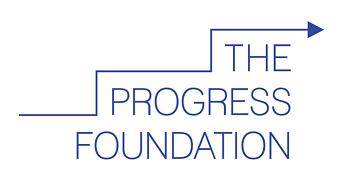The death of Aaron Swartz on 11 January 2013 has raised public awareness of the issue of access to academic publishing. Swartz, the internet entrepreneur behind Reddit, followed the Gates/Zuckerberg path of dropping out of a prestige university to found an internet company which then made him millions. After selling Reddit, Swartz started campaigning for freedom of information on the internet. One of his actions was to download the entire content of JSTOR, one of the most comprehensive databases of academic articles, with the intention of making the material freely available. His gripe was that JSTOR charges universities considerable sums for access to the articles, but instead of remunerating the academics who wrote the material, payment is made to the publishers. His action led to JSTOR’s recent announcement that it will extend public access to articles. Swartz settled with JSTOR, but he was being pursued in a criminal case, with the prosecution asking for a jail sentence of 35 years. There is considerable speculation that this case led to his suicide.
Those who work in academe are under considerable pressure to publish books or articles in refereed journals. Their publication rate is one of the key factors in obtaining funding and promotion, so academics willingly submit, without payment, articles to journals in the hope that this will raise their profile. The journals are published commercially, often by large publishing houses such as Reed Elsevier and Springer Verlag, which bear the costs of editing, printing and dissemination. Of course, some of these latter costs have been much reduced by the advent of the internet, but they still charge universities considerable sum for online access to the journals, often through a database such as JSTOR or Project Muse.
Academics are beginning to look for different ways of disseminating their work. One such initiative is Open Book Publishers, started by a small team of Cambridge academics. They describe their mission as follows:
We are in the midst of what journalists are calling an “academic spring”. Researchers are realising that the high cost of academic books and journals means that only a select readership can access their work. Open Access (that is, making texts free to read online) helps spread educational materials to everyone, globally, not just to those who can afford it.
So what is all this to do with the Progress Foundation? We focus on supporting charities which work with young people, so Open Book Publishing sounds rather outside our normal run of activities. We have become increasingly interested in enterprise and preparing young people to take on economic roles in society, whether in employment or running their own business. We are founder supporters of Next Big Thing, which takes enterprise training into schools. We are also supporting New Horizon Youth Centre to launch a new enterprise project, which will include training and experience in running a youth-led enterprise. One of our trustees is a member of the Venturesome and has pioneering experience in the social investment market.
This led us to conclude that we should dip a toe in the social investment market, both to learn from experience and also to demonstrate our commitment to enterprise. Open Book Publishers found themselves in a position encountered by many charities and social enterprises – they had a promising model but needed to recruit to make it work. Since the recruitment needed to come before the income, they were worried about cash flow. We have therefore provided them with a small borrowing facility which allowed them to recruit with confidence. Our goal was to help Open Book Publishers develop their activities and allow them time to become self-sustaining. A further goal is for us to learn about managing social investments. We are not currently looking to make this a major strand of our work but we think that helping Open Book Publishers is in line with our support of enterprise and innovation.
